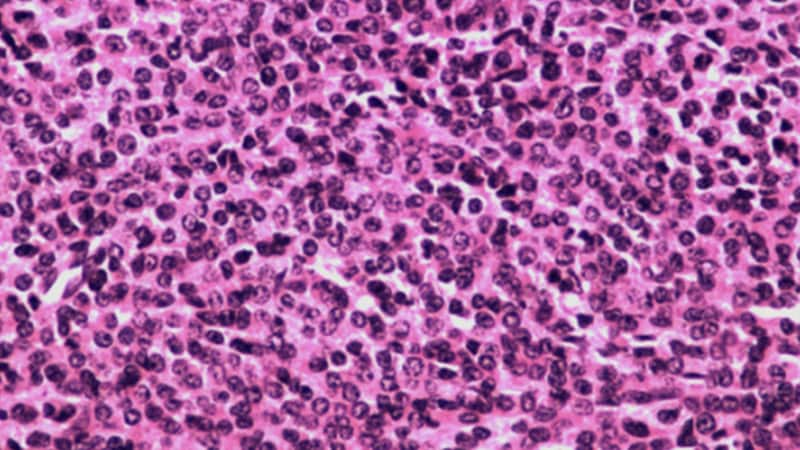A bid by GlaxoSmithKline (GSK) to bring its multiple myeloma drug belantamab mafodotin (Blenrep) back to the market hit a stumbling block during an US FDA panel meeting held on July 17.
The FDA’s Oncologic Drugs Advisory Committee (ODAC) voted 5-3 against belantamab in combination with bortezomib and dexamethasone and 7-1 against belantamab in combination with pomalidamide and dexamethasone on the specific questions of whether the benefits of each treatment regimen at the proposed doses outweigh the risks for patients with relapsed or refractory disease after at least one prior line of therapy.
ODAC members voting no cited concerns about the lack of exploration of optimal dosing, as well as high rates of ocular toxicity and a lack of diversity among trial participants.
“This was a challenging decision because the efficacy data were strong, but the toxicity data were also very strong,” said Neil Vasan, MD, PhD, of New York University Langone Health in New York City.
Regarding optimal dosing, Vasan, who voted no on both questions, cited “a missed opportunity over the course of many years during the development of this drug to explore these different dosages,” but he also noted that “the building blocks are here to explore this question in the future.”
Belantamab, an antibody-drug conjugate targeting B-cell maturation antigen, was granted accelerated approval as a late-line therapy for relapsed or refractory multiple myeloma in August 2020 based on findings from the DREAMM-2 trial. However, GSK voluntarily withdrew the drug from the US market in 2023 after the confirmatory DREAMM-3 trial did not meet its primary endpoint of improved progression-free survival (PFS).
The company continued to explore belantamab in combination with other agents and in earlier lines of therapy. Based on findings from the DREAMM-7 and DREAMM-8 trials, which both showed improved PFS vs standard-of-care triplet therapies, the company submitted a new Biologics License Application in November 2024 seeking approval of the belantamab-based regimens.
Findings from DREAMM-7 and DREAMM-8 were reported at the 2025 American Society of Clinical Oncology conference in Chicago in June.
Both studies met their primary PFS endpoints, but the FDA expressed concerns about adverse events, dosing, and the relevance of the data for US patients and therefore sought input from ODAC members on the proposed dosages of 2.5 mg/kg every 3 weeks for the belantamab plus bortezomib and dexamethasone combination and 2.5 mg/kg in cycle 1, followed by 1.0 mg/kg every 4 weeks for the belantamab plus pomalidamide and dexamethasone combination.
Although GSK and several patients with multiple myeloma touted life-saving benefits of belantamab and argued that ocular toxicity associated with treatment is manageable and transient, most — but not all — ODAC members were unconvinced, at least as to the immediate questions regarding the benefit-risk profile.
“This is probably one of the most difficult votes I’ve done as a member of this committee,” said Grzegorz S. Nowakowski, MD, of the Mayo Clinic, Rochester, Minnesota, who voted yes on belantamab plus bortezomib and dexamethasone.
Nowakowski noted mistakes made from a regulatory perspective, including a lack of appropriate US patient representation in the trials and attention to dose optimization, but ultimately said that, as a practicing hematologist, he couldn’t ignore the drug’s clear activity, including a possible overall survival benefit, and the potential for mitigating toxicity with careful follow-up and dose reductions.
John DeFlice, MD, of Cedars-Sinai Samuel Oschin Cancer Center in Los Angeles — a multiple myeloma survivor and patient representative on the committee — voted yes on both questions, noting that, based on the testimony of patients and the clinical experience of the investigators, belantamab is “an amazing drug for an incurable disease.”
“I think [these] are the wrong issues to be evaluated,” DeFlice said of the specific questions posed by the FDA at the hearing.
The FDA considers the recommendations of its advisory panels in making final approval decisions but is not bound by them.
Sharon Worcester is an award-winning medical journalist based in Birmingham, Alabama, writing for Medscape Medical News, MDedge, and other affiliate sites. She currently covers oncology, but she has also written on a variety of other medical specialties and healthcare topics. She can be reached at sworcester@mdedge.com or on X: @SW_MedReporter.
Source link : https://www.medscape.com/viewarticle/fda-advisory-panel-votes-no-belantamab-myeloma-2025a1000j6y?src=rss
Author :
Publish date : 2025-07-21 05:50:00
Copyright for syndicated content belongs to the linked Source.
